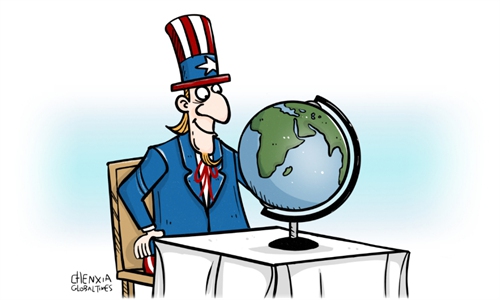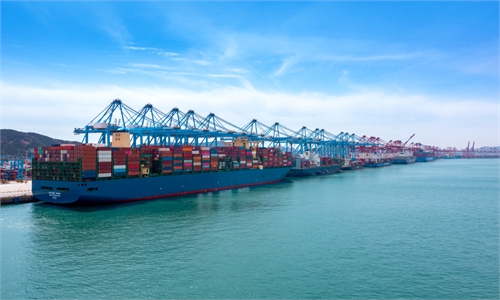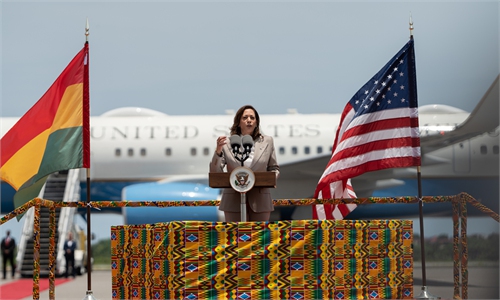
China-Africa ties Illustration: Liu Rui/GT
If some Western media outlets continue to focus on the infrastructure investment figure only, they risk missing out on the real significance of the Belt and Road Initiative (BRI) adjustment for Africa's overall development.China's investment in sub-Saharan Africa related to the BRI dropped 55 percent to $7.5 billion in 2022, marking a new low, Nikkei Asia reported on Saturday, citing a recent report from the Green Finance and Development Center at Fudan University in Shanghai.
The timing of the news is quite delicate. On Sunday, US Vice President Kamala Harris promised greater investment for Africa as she began a weeklong tour of the continent, according to Reuters.
Harris is the fifth senior US official to set foot on the continent in three months. The rare importance and interest the US has attached to Africa recently have made some Western media outlets to believe that on the economic front, the US and its Western allies could offer a counterweight to the influence of China in Africa as increased US investment will reduce the continent's need to rely on China. But if the US continues to treat Africa as a "battleground" for competing influence with China or Russia, one has to worry whether the continent's future development will be hijacked by the US-led "new Cold War."
China has already formed a relatively complete set of policies on economic and trade cooperation with Africa, on the back of fruitful achievements. In the face of the US' efforts to expand its political and economic influence in the continent, China only needs to focus on common priorities with partners, such as continuing to push ahead with the BRI construction to align with Africa's development strategy.
Over the past decade, the BRI has led to a series of large infrastructure projects rolled out across the continent, including ports, hydroelectric dams, highways, and airports.
For instance, in December 2022, the opening of the second container terminal at the port of Abidjan in Côte d'Ivoire has strengthened the port's position as a shipping hub in West Africa, contributing to the local economic and social development. Likewise, the inauguration of the Gouina hydroelectric dam in Mali has addressed in part local electricity shortages; the completion of the first phase of the Blue Line light rail project in Lagos, Nigeria, has significantly improved the city's transport infrastructure.
China's high-quality and efficient actions have brought tangible benefits and opportunities to Africa's development. The US once showed little interest in the African market due to the low return on investment. Now its renewed interests toward the continent are not just built on geopolitical calculations, but also economic considerations.
Whether the US admits it or not, the infrastructure cooperation between China and Africa has laid the economic foundation for the region's long-term development. While some Western media outlets may hype up the decline in China's investment related to the BRI infrastructure in Africa, it should be noted that China remains a major financer of infrastructure projects in the region.
Indeed, after years of infrastructure construction, the BRI in Africa has entered a new phase, which is not just about funding and providing infrastructure, but about how to use the infrastructure to boost industrial development and create jobs. Only by this way can Africa's economy grasp the potential to grow sustainably.
During a seminar in Beijing last week, Zhang Jianhua, deputy director of the foreign investment department at the National Development and Reform Commission, said that China will explore cooperation with Africa in such industries as metallurgy, machinery, chemicals, auto manufacturing, and others based on the national conditions, industrial conditions and development needs of African countries. China will promote "small yet smart" projects under the BRI framework to facilitate African industrial upgrading and economic diversification, so as to help both Chinese and African companies to jointly integrate into and shape global industrial chain and innovation chain.
While infrastructure projects will continue, the emphasis for the new phase of the BRI construction may shift to those "small yet smart" projects to boost the continent's industrial development on the basis of basic infrastructure facilities.



